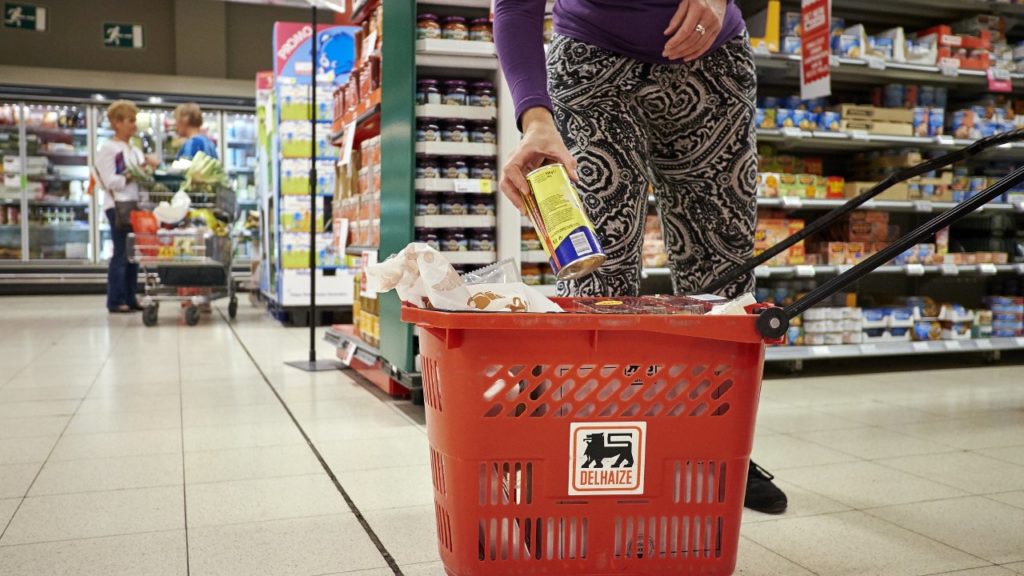As food prices in supermarkets soared, Belgians were increasingly spending more of their budget on groceries. If inflation does not decrease more rapidly, more than half of households envisage further cuts.
Since supermarket inflation started reaching unusual levels around this time last year, food is taking an ever bigger bite out of a household's monthly budget. After a peak was recorded earlier this year, prices have steadily been dropping, but they remain enormously increased compared to last year.
The latest calculation showed that inflation is still 11.5%. While many consumers are choosing cheaper shop-owned brands (Boni in Colruyt or 365 at Delhaize, for example) over so-called "A-brands", one in three Belgians is still spending a around 30% of their budget on food every month, excluding spending on restaurant visits. One in eight even spends more than 40%, a survey by service company Edenred showed.
Despite inflation being lower than in the previous period for several months now, nine in ten Belgians think that food will (continue to) get more expensive. If prices continue to rise, 55% will see themselves forced to make further savings on food, despite the fact that food, after housing, is an item that households are usually least inclined to spend less.
Worrying development
The survey also showed the growing importance of the meal voucher, an extra-legal benefit for which neither the employee nor employer has to pay social security contributions or taxes.
"Meal vouchers have had the same nominal value since 2015. In other words, they have not adapted to evolutions in purchasing power. So, strictly speaking, the value of the meal voucher has been devalued," said Olivier Bouquet, general manager of Edenred Belgium.
The majority of respondents (85%) indicated that meal vouchers are particularly important for their purchasing power, while one in four even fears that the quality of their food would deteriorate without meal vouchers.
"Food is becoming more expensive, and one of the objectives of meal vouchers is precisely to give workers guaranteed access to a decent meal on working days. Without meal vouchers, many working Belgians would even have to compromise on the quality of their food. And that is quite a worrying development," Bouquet noted.

